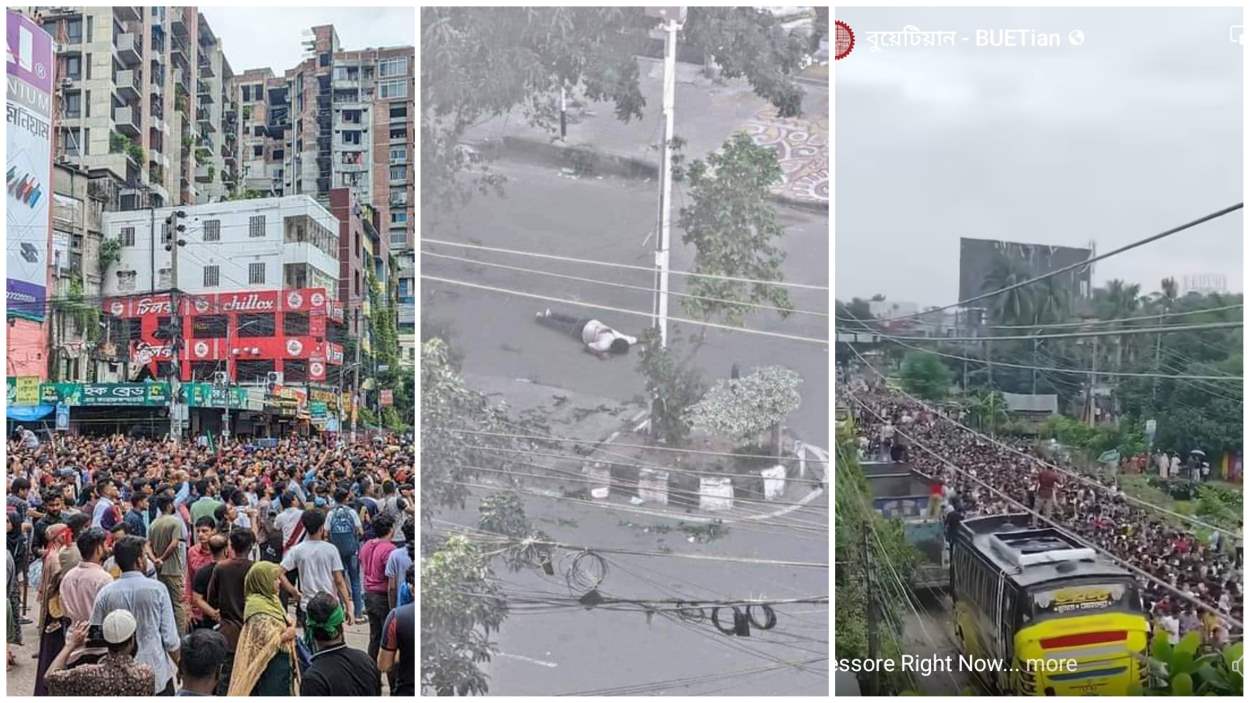Thousands of Bangladeshi protesters crowded into a central Dhaka square Sunday, demanding Prime Minister Sheikh Hasina’s resignation after a deadly police crackdown. Many protesters wielded sticks, rallying in response to a call from Asif Mahmud, a key protest leader. Mahmud urged supporters on Facebook to “Prepare bamboo sticks and liberate Bangladesh.”
The army intervened to help restore order following earlier protests, and some former military officers joined the student movement. Former army chief General Ikbal Karim Bhuiyan showed his support by turning his Facebook profile picture red.
The current army chief, Waker-uz-Zaman, reassured officers at military headquarters in Dhaka, declaring the army a symbol of the people’s trust, always ready to support the populace and state needs. His statements came during a tumultuous period marked by civil service job quota protests that erupted into mayhem in July, killing over 200 people—marking some of the worst unrest during Hasina’s 15-year tenure.
Despite the army’s efforts to restore calm, massive crowds resumed protests this week, escalating into an all-out non-cooperation movement aimed at paralyzing the government. On Saturday, police watched as hundreds of thousands marched through Dhaka.
The protests have evolved into a broader anti-government movement, drawing support from various societal strata, including celebrities and artists. New rallying calls on social media have shifted the focus from job quotas to broader governmental change.
Meanwhile, Obaidul Quader, general secretary of Hasina’s ruling Awami League, has called for counter-protests to show support for the government. Dhaka remains tense, with a significant decrease in traffic and anticipation of further large-scale protests.
The group Students Against Discrimination, which organized the initial protests, has called for continued rallies and urged non-cooperation, including non-payment of tax and utility bills, to pressure the government. They have also called for strikes among government workers and labourers in key economic sectors like the garment industry.
Prime Minister Hasina, in power since 2009 and reelected in January without genuine opposition, faces accusations from rights groups of misusing state power to suppress dissent. The demonstrations began over a controversial job quota scheme, recently scaled back by the nation’s top court.






